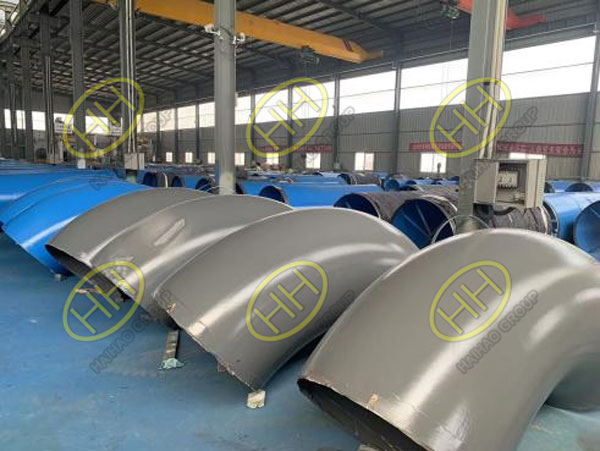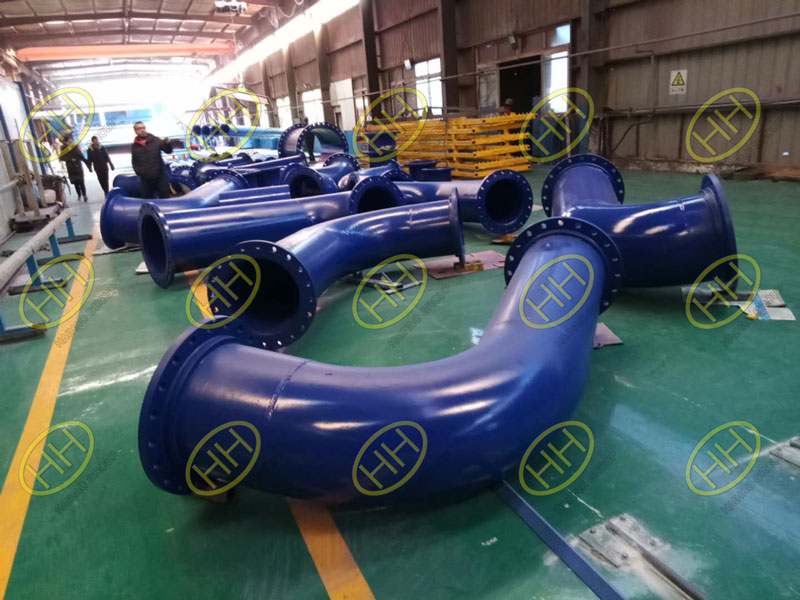Cyclic failure modes of pressure vessels
Cyclic failure modes refer to the types of failures that occur in pressure vessels after long periods of operation under cyclic loading conditions. These failures develop as the vessel is repeatedly subjected to loading and unloading cycles, which can lead to material fatigue, deformation, and eventual structural breakdown. Below are the key cyclic failure modes in pressure vessels, along with preventive measures to mitigate these risks.

Elbows coated FBE
1.Progressive Plastic Deformation
Progressive plastic deformation occurs when certain parts of a pressure vessel experience repeated plastic deformation due to multiple load cycles. This failure mode is often seen when a vessel is subjected to a combination of constant and cyclic loads. The cumulative effect of these alternating stresses leads to excessive deformation over time. A common example of this failure mode is the thermal stress ratcheting phenomenon, where thermal expansion and contraction cause incremental plastic strain.
Preventive Measures:
Perform evaluations based on the assessment criteria outlined in relevant standards.
2.Alternate Plasticity
Preventive Measures:
Ensure that the elastic nominal stress remains below twice the material’s yield strength to prevent alternate plasticity.

FBE Coating Pipings
3.Fatigue
Fatigue failure occurs when cyclic loading causes crack initiation and propagation, eventually leading to fracture. Under alternating stresses, local damage accumulates at stress concentration points within the structure. Over time, cracks develop and expand, penetrating the entire cross-section of the vessel, resulting in failure.
Preventive Measures:
Conduct fatigue analysis according to applicable standards.
Use designs that minimize stress concentration.
Reduce residual stress generated during the manufacturing process.
4.Environment-Assisted Fatigue
Environment-assisted fatigue involves cracking and structural damage caused by the combined effects of cyclic loading and corrosive media. The interaction of these two factors accelerates the degradation of the material, leading to premature failure.
Preventive Measures:
Select materials compatible with the corrosive media the vessel is exposed to.
Employ designs that reduce stress concentration.
Minimize residual stress during manufacturing to reduce the likelihood of crack initiation.
Cyclic failure modes are a significant risk for pressure vessels operating under varying load conditions over extended periods. Progressive plastic deformation, alternate plasticity, fatigue, and environment-assisted fatigue can all compromise the structural integrity of pressure vessels if not adequately addressed. By adhering to appropriate standards, using suitable materials, and optimizing vessel design, these cyclic failure risks can be minimized, ensuring the long-term reliability and safety of pressure vessels.
Related articles:
Short-term failure modes of pressure vessels
Long-Term failure modes of pressure vessels
